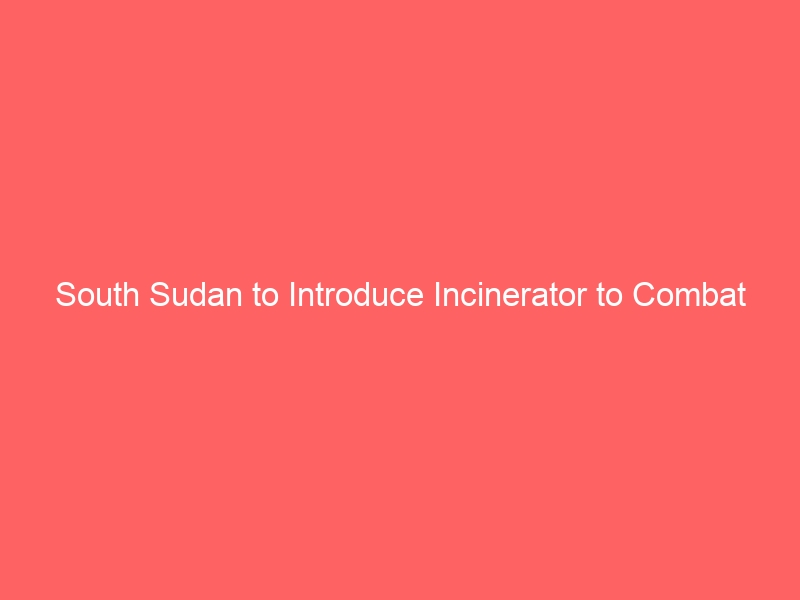South Sudan is facing a major waste management crisis, with limited infrastructure and resources to properly dispose of its growing amount of waste. The lack of proper waste disposal methods has led to environmental pollution, public health issues, and a negative impact on the overall quality of life for its residents.
The Solution: Incinerators
One solution to combat South Sudan’s waste management crisis is the introduction of incinerators. Incinerators are a waste treatment technology that can help reduce the volume of waste, minimize its impact on the environment, and generate energy in the process.
How Incinerators Work
Incinerators work by burning waste at high temperatures, converting it into ash, flue gas, and heat. The heat generated can be used to produce steam, which can then be utilized to generate electricity. This not only helps to reduce the volume of waste but also provides a sustainable source of energy.
The Benefits of Incinerators
Introducing incinerators in South Sudan can have several benefits, including:
- Reducing the volume of waste
- Generating energy
- Minimizing environmental pollution
- Improving public health
- Promoting sustainable waste management practices
Challenges and Considerations
While incinerators can be a valuable addition to South Sudan’s waste management infrastructure, there are also challenges and considerations to take into account. These include ensuring proper emissions controls to minimize air pollution, addressing concerns about toxic ash and flue gas, and providing adequate training and resources for the operation and maintenance of incinerators.
Conclusion
Introducing incinerators to combat South Sudan’s waste management crisis has the potential to provide a sustainable solution that not only reduces the volume of waste but also generates much-needed energy. By addressing these challenges and considerations, incinerators can play a crucial role in improving the overall waste management infrastructure and the quality of life for the people of South Sudan.








